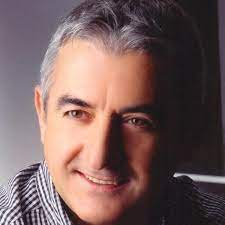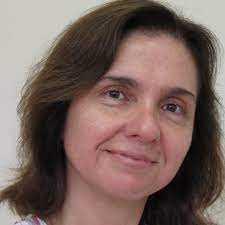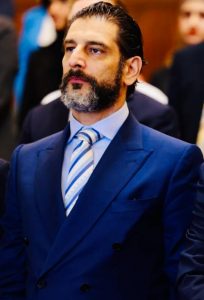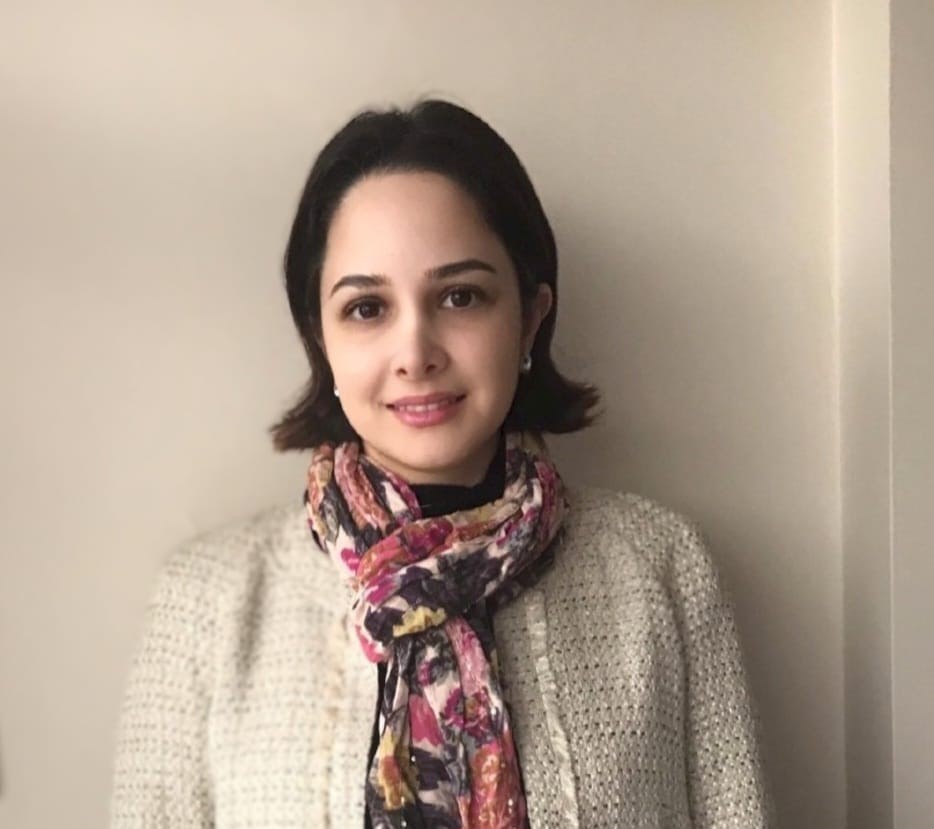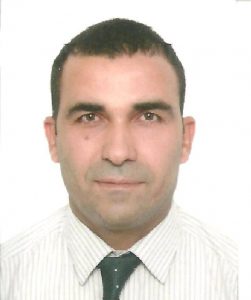Science, Engineering, Artificial Intelligence and Machine Learning
Professor Dr. Levent Sevgi
IEEE Fellow, IEEE AP-S Distinguished Lecturer, Turkey
Web: leventsevgi.net
ls@leventsevgi.net; ls@leventsevgi.net
Prof. Dr. Levent Sevgi is a Fellow of the IEEE (since 2009) and the recipient of IEEE APS Chen-To Tai Distinguished Educator Award (2021). He received his B. Eng., M. Eng., and PhD degrees in Electronic Engineering from Istanbul Technical University (ITU) in 1982, 1984 and 1990, respectively. In 1987, while working on his PhD, he was awarded a fellowship that allowed him to work with Prof. L. B. Felsen at Weber Research Institute / New York Polytechnic University York for two years. His work at the Polytechnic concerned the propagation phenomena in non-homogeneous open and closed waveguides.
He was with Istanbul Technical University (1991–1998), TUBITAK-MRC, Information Technologies Research Institute (1999–2000), Weber Research Institute / NY Polytechnic University (1988–1990), Scientific Research Group of Raytheon Systems Canada (1998 – 1999), Center for Defense Studies, ITUV-SAM (1993 –1998 and 2000–2002) and with University of Massachusetts, Lowell (UML) MA/USA as a full-time faculty (2012 – 2013), with DOGUS University (2001-2014) and with Istanbul OKAN University (2014 – 2021). He has been with Istanbul ATLAS University since Sep 2022.
He has been an IEEE AP-S Distinguished Lecturer for the term 2020-2023. He served one-term in the IEEE AP-S AdCom (2013-2015) and one-term and as a member of IEEE AP-S Field Award Committee (2018-2019). He had been the writer/editor of the “Testing ourselves” Column in the IEEE AP Magazine (2007-2021), a member of the IEEE AP-S Education Committee (2006-2021), He slso served in several editorial boards (EB) of other prestigious journals / magazines, such as the IEEE AP Magazine (2007-2021), Wiley’s International Journal of RFMiCAE (2002-2018), and the IEEE Access (2017-2019 and 2020 – 2022). He is the founding chair of the EMC TURKIYE International Conferences (www.emcturkiye.org).
He has been involved with complex electromagnetic problems and complex communication and radar systems for nearly three decades. His research study has focused on propagation in complex environments; electromagnetic scattering and diffraction; RCS prediction and reduction; EMC/EMI modelling, simulation, tests, and measurements; multi-sensor integrated wide area surveillance systems; surface wave HF radars; analytical and numerical methods in electromagnetics; FDTD, TLM, FEM, SSPE, and MoM techniques and their applications; bio-electromagnetics. He is also interested in novel approaches in engineering education, teaching electromagnetics via virtual tools. He also teaches popular science lectures such as Science, Technology and Society.
He has given dozens of seminars, invited/keynote talks, organized/presented several tutorials, training sessions and short courses from half-day to three-days in universities/institutes all around the World. He has published more than a dozen special issues / sections in many journals as a guest editor and/or a co-guest editor.
He has published many books / book chapters in English and Turkish, over 180 journal/magazine papers / tutorials and attended more than 100 international conferences / symposiums. His three books Complex Electromagnetic Problems and Numerical Simulation Approaches, Electromagnetic Modeling and Simulation and Radiowave Propagation and Parabolic Equation Modeling were published by the IEEE Press – WILEY in 2003, 2014, and 2017, respectively. His fourth and fifth books, A Practical Guide to EMC Engineering (Sep 2017) and Diffraction Modeling and Simulation with MATLAB (Feb 2021) were published by ARTECH HOUSE.
His h-index is 37, with a record of more than 4950 citations (source: Google Scholar, Apr 2023).
Abstract:
This speech is about science, engineering, and artificial intelligence (AI). Roughly speaking, scientists ask the question “why”, engineers ask the question “how”. In other words, scientists are “thinkers”, engineers are “doers”. AI deals with building machines and computers that can mimic cognitive functions associated with human intelligence, such as being able to see, understand, and respond to inquiries / questions, analyze data, make recommendations, etc. It may also be defined as a technology or system with reasoning, learning and acting capabilities towards solving complex problems.
Machine Learning (ML), on the other hand, is a subset of AI which enables a machine or a system to learn and improve from experience or data, and then make informed decisions. ML does not use classical programming, instead ML uses algorithms towards analyzing large amounts of data. AI and ML are quite different but are closely connected. AI is the concept of enabling a machine or system to sense, reason, act, or adapt like a human; ML is an application of AI that allows machines to learn from existing data.
Scientists define complex problems and introduce conceptual (mostly mathematical) models, engineers get observable (either computable or measurable) data through experimentations and/or numerical simulations. AI and ML use recorded data in sensing, learning, reasoning, and acting like a human. They both use interpolation and extrapolation when necessary, assuming everything is smooth in between recorded data. But what happens if things are not as smooth as assumed, even if there are anomalies which happen very often, for example, in electromagnetic engineering?
This talk will discuss modeling and simulation strategies pertaining to complex EM problems and the use of AI and ML in electromagnetic engineering. Provocative questions will be asked through examples in EM Wave Theory, Antennas and Radiowave Propagation, EM Scattering and Diffraction, and Guided Wave Theory.
====================
Autonomous Machine Learning (AutoML): developing neural network models with quantum-inspired evolutionary algorithm
Professor Marley Vellasco
Vice-Rector at the Pontifical Catholic University of Rio de Janeiro (PUC-Rio), Brazil
Professor Marley Vellasco is a Full Professor and Vice-Rector at the Pontifical Catholic University of Rio de Janeiro (PUC-Rio). Marley holds a degree in Electrical Engineering/Electronics from PUC-Rio (1984), a Master’s in Electrical Engineering from PUC-Rio (1987) and a PhD in Computer Science from University College London (UCL) (1992). She has published over 90 papers in specialized journals and more than 400 in conference proceedings. Dr Vellasco has also published 19 book chapters and five scientific books. She supervised more than 90 master’s dissertations and 40 doctoral theses. She is a member of the Editorial Board of the main journals in Computational Intelligence, such as Neural Networks, IEEE Transactions on Neural Networks and Learning Systems, IEEE Transactions on Fuzzy Systems and IEEE Transactions on Artificial Intelligence. She is the current Vice-President for Conferences of the Computational Intelligence Society (CIS) of IEEE and the Secretary of the International Neural Network Society. She has experience in the areas of Electrical Engineering and Computer Science, with an emphasis on Computational Intelligence, working mainly on the following topics: neural networks, fuzzy logic and evolutionary computing, focusing on the development of intelligent hybrid systems for AutoML (Automatic Machine Learning), such as neuro-evolutionary, fuzzy-evolutionary models and neural architecture search (NAS).
Abstract:
The area of autonomous machine learning (AutoML) aims to develop decision support systems automatically. The goal is to make machine learning accessible to other scientists who want to apply these techniques to their domains. The area ofneuro-evolutionary models or, more recently, Neural Architecture Search (NAS) can be seen as a sub-area of AutoML and is an essential step towards automating the development of neural network architectures. This talk presents an overview of quantum-inspired evolutionary models and their application in the automatic evolution of different models of artificial neural networks, from simple (shallow) Multi-Layer Perceptrons and Recurrent Neural Networks to more complex deep Convolutional Neural Networks. Applications in control, system identification, image classification and time series forecasting will be presented.
====================
“Theory behind probabilistic”
Generically, P is Not probably not NP
Dr. Amer Aladhadh
Mathematician and Economist
BS, BA, PhD
Adviser to the Prime Minister of Iraq, Baghdad, Iraq
Amer Aladhadh is an exceptional Iraqi mathematician and economist, whose remarkable journey in academia and public policy is marked by a series of achievements and influential mentors.
Amer’s early recognition in the field of mathematics came in 2004 when he was awarded a prestigious fellowship from the Institute for Mathematical Behavioral Sciences. This was a clear indication of his remarkable talent and dedication to mathematical research, setting the stage for a career marked by groundbreaking discoveries and intellectual excellence.
In 2008, Amer received the “Best Research” award from the Institute for the Study of Complexity in Paris, further solidifying his status as a thought leader in the study of complex systems. This award recognized his significant contributions to the field and his pioneering work in understanding the intricacies of complexity theory.
Throughout his career, Amer Aladhadh has contributed to various academic disciplines through research papers covering diverse topics such as financial economics, singularity theory, complexity theory, and game theory. His work on complexity theory, in particular, has advanced a probability theory approach to understanding the complexity of computation, challenging the age-old question of whether P equals NP.
Amer’s expertise extends beyond academia. He has shared his knowledge and insights with students at esteemed institutions like Georgetown University and the University of Irvine, where he has delivered lectures on subjects including public policy and econometrics. Additionally, Amer has worked as a quantitative consultant for major hedge funds on Wall Street, using his mathematical acumen to contribute to their financial strategies.
In recognition of his contributions to the field of economics, Amer has advised the government of Qatar on matters related to economic development and investment, receiving several certificates of gratitude from the Qatari government. These certificates are a testament to his valuable insights and guidance in shaping economic policies.
Currently, Amer Aladhadh holds the esteemed position of Adviser to the Prime Minister of Iraq, where his expertise plays a pivotal role in shaping economic policies and strategies for the nation. Additionally, he serves as a Member of the UNECE (United Nations Economic Commission for Europe) PPP (Public-Private Partnerships) Working Party, contributing to the development of sustainable and efficient public-private partnerships on a global scale.
Amer’s academic journey has been significantly enriched by his studies under the mentorship of renowned professors who have left an indelible mark on their respective fields. These influential professors include:
– **Halbert White – Modern Portfolio Theory**: Under Halbert White’s guidance, Amer gained a deep understanding of Modern Portfolio Theory, optimizing investment portfolios by balancing risk and return, a fundamental concept in finance.
– **Clive Granger – Cointegration Theory**: Amer’s study of Cointegration Theory was influenced by the renowned economist Clive Granger, whose work has been instrumental in understanding long-term relationships between economic variables.
– **Robert Engle – Investment**: Amer’s studies in investment were shaped by his engagement with Nobel laureate Robert Engle, providing insights into investment, risk management, and the analysis of financial time series data.
– **Donald Saari – Nonlinear Dynamics and Singularity Theory**: Amer’s exploration of nonlinear dynamics and singularity theory was influenced by the expertise of Donald Saari, whose work in dynamical systems and mathematics applications was foundational to his contributions in complexity theory.
Each of these esteemed professors played a pivotal role in shaping Amer Aladhadh’s academic and professional journey. Their mentorship, insights, and groundbreaking research provided him with the knowledge and expertise needed to excel in his studies and later contribute significantly to the fields of mathematics, economics, and complexity theory. Amer’s unique blend of insights from these influential mentors has allowed him to approach complex problems with a multidisciplinary perspective, making him a distinguished figure in the world of academia and public policy.
Abstract:
This note develops a probabilistic understanding of computational complexity. Using singularity theory, the paper shows the generic dimension of a solution in search space. Then, the complexity of a problem is defined in terms of expected time for a non-deterministic search to reach the solution space within the search space. The search space size and dimension vary with the problem while dimension of the solution space depends on the number of binding restrictions for a solution. These generic properties of the solution space can be obtained using singularity theory. As a motivational example, this paper uses singularity theory to characterise the generic properties of cut the cake problem and the dimensionality of its solutions subspace under different solution conditions and restrictions. Using the generic size of the solution space compared to the domain, the paper builds complexity in terms of number of iterations to the first solution. This measure theoretic definition makes more intuitive the problem of computational complexity. The paper shows that under the measure theoretic definition cutting the cake problem goes from P to NP to unsolvable depending on the solution criteria.
====================
====================
The use of machine learning to sports sciences
Professor Yanguo Jing
BSc (Hons), MSc, PhD, CMBE, CITP, FBCS, PFHEA
Dean of Faculty of Business, Computing and Digital Industries
Leeds Trinity University, Horsforth, Leeds, United Kingdom
Professor Jing is the Dean of the Faculty of Business, Computer Science and Digital Industries, Leeds Trinity University. He is a Professor of Artificial Intelligence. He has a PhD (Heriot-Watt University, UK), a MSc, a 1st class BSc (Hons) in Computer Science and a PGCert in Learning and Teaching in Higher Education. He has over 20 years’ teaching, research and enterprise experience in the UK and in China. Prof. Jing is a Fellow of the British Computer Society, a Charter IT professional and a Principal Fellow of the Higher Education Academy in the UK. Prof. Jing’s prime research interests are AI and big data. His recent research work focuses on the use of machine-learning methods to capture interaction and user behaviour patterns that can be used to develop intelligent applications. This research has been applied in applications such as business analytics, sports analytics, and user behaviour pattern recognition in social networks and extra-care/ Assisted Living settings. He participated in several research, KTP and consultancy projects with sponsors and clients such as Cadent Gas, Pfizer, Welsh Government, KPIT, UK’s Comic Relief charity and JISC in the UK. Prof. Jing has been instrumental in bringing over £30M funding in innovation and executive education.
Abstract:
Machine learning have been widely used to efficiently identify hidden patterns, correlations, and valuable insights from large datasets. This talk provides in-depth coverage of three separate but related projects using machine learning in sports sciences. They are: 1. the use of machine learning to identify swim metrics using wearable devices. 2. the use of machine learning to identify and predict energy consumption among young football players. 3. the use machine learning to determine the key contributors to football technical skill in grassroots youth football players and how machine learning models can be used to predict technical skill among young footballers. The speakers will also provide further thoughts in terms of ethical consideration and future works of these studies.
====================
Sustainable biomaterials and their applications in tissue engineering
Dr. Duygu Ege (PhD University of Cambridge, UK)
Associate Professor
Boğaziçi University , Turkey
Duygu Ege is Associate Professor at Boğaziçi University and Humboldt fellow at the University of Erlangen-Nuremberg, Institute of Biomaterials (Prof. Boccaccini’s Lab). Her area of expertise is biomaterials and their tissue engineering applications. Duygu Ege has a PhD in Medical Materials from University of Cambridge and a MEng (Bachelar studies + Master studies) Degree in Materials Science and Engineering (First Class Honours) from Imperial College, London. Her other awards include Centenary Prize from Imperial College, London (2009) and Dorothy Hodgkins Scholarship leading to PhD at University of Cambridge.
Abstract:
Many biomaterials currently in use are synthetic and are based on petroleum as a raw material. They are environmentally unfriendly due to greenhouse gas emissions, and they are non-degradable, causing environmental pollution. In contrast, renewable biomaterials are environmentally friendly and sustainable. Renewable biomaterials are derived from plants, micro-organisms and animals. For example, cellulose (plant fibre) is the most abundant biomaterial on the planet and is a “green” biomaterial derived from wood. Chitosan, gelatin, alginate and silk fibroin are some of the other important sustainable biomaterials. In this talk, the “green” and sustainable biomaterials and their applications in tissue engineering will be presented, focusing on the research activities in our research group. Our research so far with sustainable biomaterials are focusing to bone, cartilage and cardiac regeneration which will be delivered in detail.
====================
Invited Industrial Speaker
====================
Bioethics of AI in Medicine
Dr. Mr. Yasser Abdullah
Clinical, surgical, digital safety and research work East of London at Barking, Havering and Redbridge University Hospitals NHS Trust.
Dr. Yasser Abdullah is a Specialist Medical Retina, Glaucoma and Cataract Surgeon, Clinical Informatics Lead, Clinical Safety Officer, Licensed Medical College Lecturer and Instructor in Ophthalmology, Biomedical Ethicist by research. Studied Medicine and General Surgery at Tikrit University College of Medicine, Salahaddin, Iraq from 1996 to 2002, and was trained in Ophthalmology in Baghdad, Iraq to be Arab Board licensed in Amman, Jordan in 2013
Worked as a specialist ophthalmologist and cataract and refractive surgeon between 2014 and 2020 in Muscat, Oman. Currently practicing his clinical, surgical, digital safety and research work East of London at Barking, Havering and Redbridge University Hospitals NHS Trust. Clinical work covers medical retina, glaucoma and cataract surgery. His academic background spanned years of working as a college teacher assistant in pathology, then college lecturer and instructor in ophthalmology between 2004 and 2017. In his newfound passion for technology in medicine, Yasser studied “Bioethics of Artificial Intelligence in Medicine and Ophthalmology” as his masters project for the CHM Masters of Clinical Ophthalmology at the University of Edinburgh. The same subject was his Commitment of Action for change in society for his Master’s Degree from Clinton Global Initiative University in New York, USA.
In 2022 – 2023, Yasser has been a member of the advisory panel for a PhD project of electronic patient record system. He still participates in the PhD project of Robotics in eye surgery, which is done in collaboration between Institute of Electronic Systems, Faculty of Electronics and Information Technology, Warsaw University of Technology (WUT), and Anglia Ruskin University, United Kingdom.
As a bioethicist by research and clinical safety officer, his current work also include evaluating and approving many digital technologies in the NHS, advocating for the patients’ rights in privacy, confidentiality and informed healthcare service decisions and campaigning for equity and diversity in medical digital technologies
Abstract:
This presentation is about the ethical use of artificial intelligence in medicine. All the stakeholders of implementing AI in medicine are impacted in one ethical aspect or another of this implementation process. The ethical dilemmas of using AI in the healthcare service, in medical education and research are discussed in this presentation with many suggested solutions, with the belief that the future doors are widely open for more disputed issues and more potential solutions.
In this presentation, AI biomedical ethics were divided into many categories according to the implementation aspect and the stakeholder impact:
Machine training ethics cover the ethical issues related to the data ownership, data protection and cybersecurity.
Machine accuracy ethics discuss machine transparency and intelligibility, black-box phenomenon and biases in AI data resources, processing and continuous tracking and elimination of biases and sources of errors.
Patient related ethics address the principles of beneficence, nonmaleficence, autonomy and justice. The patients’ rights as guaranteed in the process of informed consent. While confidentiality involves the responsibility of those entrusted to handle and protect patient’s data. It encompasses the use, storage, access, and dissemination of these data.
Physician related ethics try to solve issues of dependence on machines and doctor deskilling. The subtle doctors’ fear of machine rivalry and substitution of the machines for the doctors in their roles. Trust in doctors and their competency in serving the patients. Their empathy toward their patients is indisputably irreplaceable.
Shared ethics include liability and culpability. The question of who is responsible in case of any harm incurred using AI in medical services. Many of the legal discussions that are beyond this work are expected to provide the solutions for the issues of responsibility and accountability.
The role of regulators in the provision of standardization and quality assurance in implementing AI, in the marketing for AI, and the licensing and approval for AI in its enormous role in the future of healthcare services.
Other question will also be submitted in this presentation awaiting to be answered by and for the interest of all the stakeholders of medical AI.


